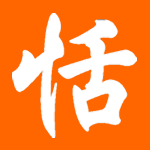Reader Neko emails:
"One of my friends from high school recently got this tattoo. She claims it means 'Eternal Love'. I found 'Eternal' in my books, but could not find anything even closely resembling her version of love. Is it a translation I simply haven't seen before? I did end up finding a 'flash' version of this same thing online somewhere, but since I only saw it once, and it was flash.. I'm having a hard time believing. I'd love to get your input on it. :)"
The top character 永 means "long, perpetual, eternal, forever". The bottom character 疼 even though sometimes it is used to describe "dote, doting", but most often it means "aches, pains, sore".
Morals of the Story: Buyers Beware.


"Eternal pain."
ReplyDeleteAt least the characters are written well! And if she's a masochist, then it's not money wasted!
The second character can be interpreted as "love" in the phrase "我疼你", which means, both literally and figuratively, "I ache for you". But if it's not in a context like this, it merely means "ache" or "pain".
hahaha... well... when she's lovey dovey, it can be "eternal love."
ReplyDeleteand when the relationship is over and she's feeling angsty and heartbroken, it can be "eternal pain".
It's rather apt given that tatttoos are 'eternal' for all practical purposes, and she's definitely going to be in 'pain' when she finds out that it says nothing like what she intended. =D
ReplyDeleteshi-hsia
A common use of 疼 is in the word 頭疼 "headache." In Chinese, new words are sometimes formed by taking one syllable from each of two words that have come to be used together. So, 永疼 could be a short form coined from 永遠頭疼, "endless headache," or maybe from something else in place of 頭. ANyone have a reverse dictionary handy?
ReplyDeleteBut to relieve the wearer of unfortunate and ironic implications, you could see 永疼as "endlessly aching [in love]."
"Coined," as in "not a real word," at least yet.
ReplyDeletewhen words are created by taking a character each from two words, you usually use the first one, not the first one from one, and the second one from another, or the second from both.
ReplyDeletealso, if that were the case here, then "eternal love (doting)" could certainly be a definition for 永疼, that is 永遠疼愛. unfortunately, as it is, 疼 used by itself as a noun is just "pain."
Yeah you're right, it should be made from the first characters of two words. It goes against natural parallelism. I can only think of one exception offhand that combines first and last, and it's two nouns, 詩賦, from 詩篇 (or 詩歌) and 詞賦 (or 辭賦). 情景 is made from the last of each pair, I think, 抒情 and 寫景, but I'm not absolutely positive it's not from other words (e.g., 情性 and 景物 ). And it would be a noun made from vb-obj pairs--unlikely? We would have to know when the compounds and their supposed origin words were created to really find out.
ReplyDeleteNot - not Lot... sorry
ReplyDeleteActually...
ReplyDeleteIt does mean Eternal Love - Love like adore or concern.
Lot negative, it is good.
From Chinese, not Japanese, but the Japanese meaning is likely close to the same meaning.
It reminds me of that old Bangles song, Eternal Pain.
ReplyDelete